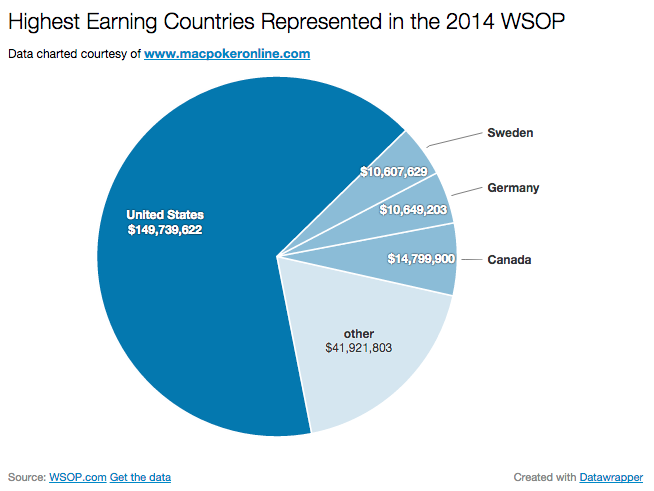Countries That Dont Regulate Online Poker
Poker players from 30 countries discovered some bad news on Oct. 1, as they were informed that they no longer had the opportunity to play at real-money tables on PokerStars and Full Tilt Poker.

Online gambling (or Internet gambling) includes poker, casinos and sports betting.The first online casino was in 1994. Many countries restrict or ban online gambling, but it is legal in some states in the United States, some provinces in Canada, most countries of the European Union and several nations in the Caribbean. Poker In Europe – Regulation by EU State Poker In Europe. Online poker legislation in Europe varies by state. In some countries (e.g UK) online poker is legal and tax-free.Others (e.g. Germany, Switzerland) haven’t legalized it but make no effort to enforce the law or restrict access.
The decision to end PokerStars and Full Tilt Poker operations in such a large number of countries came as part of a new policy adopted by Amaya Gaming, which has chosen not to offer real money gaming in the so-called 'gray markets,' jurisdictions where the industry is not explicitly regulated.
This now raises questions about the future of the operations in other countries where online poker is not regulated as Canada, where Amaya is based.
Amaya Gaming withdraws from 'gray areas'
Since the acquisition of their parent company Oldford Group Limited by the Amaya Gaming Group, PokerStars and Full Tilt have already undergone several significant changes. These included, amongst others, the launch of the new PokerStars 7 client and an opening to the casino world with the inclusion of roulette and blackjack games to PokerStars.es.
Amaya CEO David Baazov says the company intends to use both PokerStars and Full Tilt to enter new verticals like casino and the sports betting, but the group does not seem keen to keep working in 'gray markets' where online games are not expressly prohibited or strictly regulated.
Although no official list of excluded countries has been published, both poker rooms have now closed access to real money games in Malaysia, Turkey, UAE, Bangladesh, Pakistan, Egypt, Qatar, Jordan, Kuwait, Senegal, Nigeria, Bahrain, Afghanistan, Palestinian Territories, Kenya, Mozambique, Rwanda and the Vatican. Other countries that no longer have access to PokerStars and Full Tilt Poker tables are Iran, Iraq, Syria, Zimbabwe, Libya, Sudan, North Korea, Cuba, Myanmar and Yemen.
Countries That Don't Regulate Online Poker Results
'Our management team and advisors regularly review our operations market-by-market to assess commercial opportunities and business risks for our brands,' said a pop-up message that players from the affected countries have found on their screens after launching their poker clients.
'Following a recent review we have decided to stop offering real money games to players who are physically located in, or have a registered address in, a limited number of countries.'
Although none of the players from the countries above will now be allowed to sit at any of the real money poker tables available on PokerStars and Full Tilt Poker, all of them will still have the chance to log into the software and withdraw the funds available on their accounts.
Considering that the list of countries with no access to Amaya's poker rooms includes nations that are either scarcely populated or with limited Internet access, the economic impact of this move should be relatively limited for Amaya Gaming.
However, this raises a number of questions for the future of the group's operations in Canada, a country where online poker is not explicitly legal and where Amaya Gaming is headquartered.
Concerns about a possible withdrawal of both rooms from the Canadian market are also supported by the fact that earlier this August PokerStars decided to cancel its partnership with the Montreal Festival, a decision that many have seen as a hint of the group's intention to pull out from Canada – at least until online poker is fully regulated in the country.
At the time of the Group's decision to pull out from thirty gray markets became public, Amaya Gaming stock dropped nearly 3 percent at the Toronto Stocks Exchange, dipping to CAD $28.51 before recovering to CAD $30.
Image courtesy of PokerStars
Countries That Don't Regulate Online Poker Free

Get all the latest PokerNews updates on your social media outlets. Follow us on Twitter and like us on Facebook now!
Tags
PokerStarsFull Tilt PokerOnline PokerPoker BusinessPoker TablesPoker PlayersRelated Room
Full Tilt
With a poker VPN you can sign up to poker services and online casinos like PokerStars, 888 Poker, or PartyPoker. In some countries, online gambling is illegal. Unfortunately, this includes playing poker online. Luckily, a VPN for poker can let you access restricted poker sites from anywhere. Even in the US, some poker sites are restricted in certain states - and people playing in poker tournaments may need a VPN for PokerStars to access their account.
A poker VPN allows you to pretend to be in a different location. The recommended VPNs for poker in this guide all have a large choice of servers around the world - so that you can play poker on various different sites.
VPNs also provide encryption. This secures your data and gives you online privacy by stopping your ISP from tracking the sites you visit. As a result, you can access poker sites without concerns that the ISP will inform the government that you are breaking the law.
In addition, a VPN conceals your IP address - so that the websites you visit don't know where you really are. When connected to a VPN, the poker sites you visit will think that you're in the location of the VPN server.
VPNs can also protect poker players against Distributed Denial of Service (DDoS) attacks. DDoS attacks are sometimes used to boot players out of a game at a crucial moment, allowing another player to win all the money.
Best Poker VPN services - Quick look
Below, you can take a quick look at the best VPNs for poker. These VPNs were carefully selected by our expert VPN reviewers - by carefully comparing hundreds of different VPNs. If you want more details, please scroll down for the full summaries.
- ExpressVPN - The fastest VPN we test, unblocks everything, with amazing service all round
- NordVPN - Large brand with very good value, and a budget price
- CyberGhost VPN - Longtime top ranked VPN, with great price and speeds
- VyprVPN - Is a highly secure VPN that will unblock poker sites, and can protect you against DDoS attacks
- PrivateVPN - One of the cheapest VPNs out there, but still a good service
Want more information? Our in-depth list dives into the detail of all the VPNs we have picked for Pokerstars and online poker.
Best VPNs for Pokerstars
ExpressVPN is a service at the very top of the VPN industry. It has servers in 94 countries, including all the places you need servers in to play poker. It has extremely robust levels of OpenVPN encryption and a privacy policy that can be trusted. The VPN runs on tier-1 servers perfect for absorbing high sudden bursts of requests during DDoS attacks.
The entire network of servers is lightning fast and is perfect for unblocking poker. It does have a killswitch and it does permit three simultaneous connections: so you can run this on a virtual machine to protect you against crashes. This VPN is easy to use, available for all platforms and will protect you both at home and on public WiFi. Sadly it does not provide dedicated IPs - so this VPN is better for casual players that don;t have as much to risk. Finally, it has a 30-day money-back guarantee to allow you to test the service risk-free.